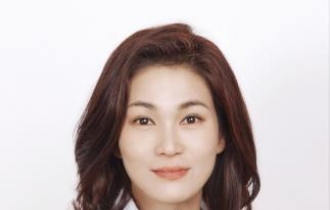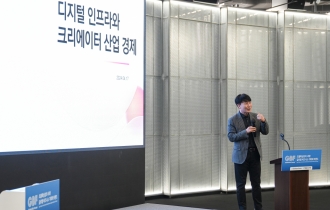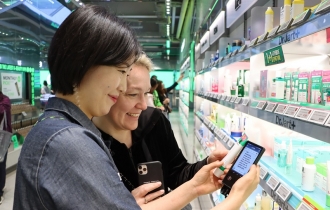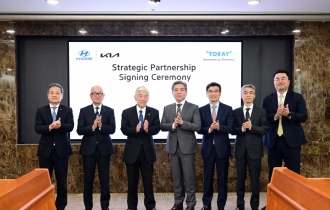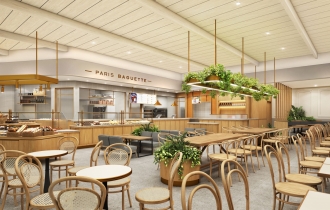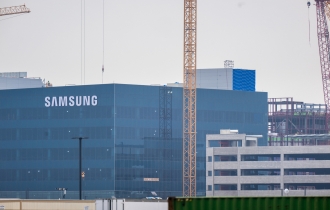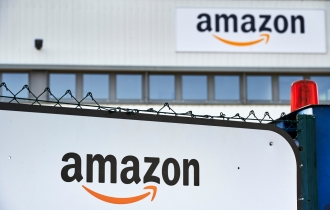Healing dry-eye syndrome with optic nerve regeneration
[THE INVESTOR] In Korea, laser eye surgery, performed as LASIK or LASEK, has become a common medical procedure over the past decade. But for many patients, improved eyesight comes at the cost of a new, debilitating side effect: dry eye syndrome.
Dry eye syndrome, or DES, is a condition in which your eyes are unable to produce enough tears to provide sufficient lubrication and moisture on the surface of the eyes, causing constant irritation and inflammation. In the case of laser eye surgery, DES is typically caused by damages to the corneal nerves.
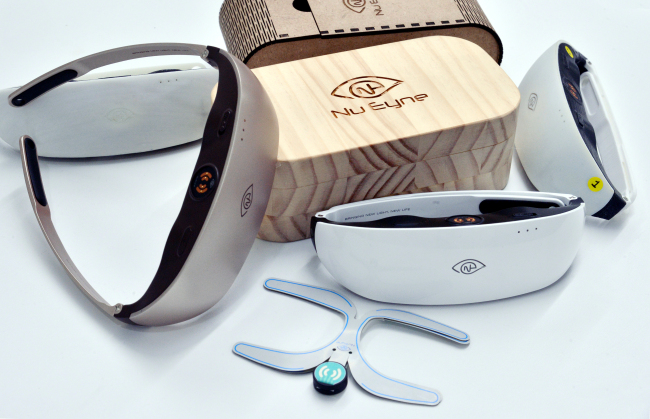
Prototypes of Nu Eyne’s eye wearable Park Hyun-koo/The Korea Herald
On top of its links to laser eye surgery, DES has been becoming more prevalent in the past few years, with increased smartphone usage as well as heightened air pollution. Despite the circumstances, DES has yet to find a treatment that can reverse or heal the disease. There are only medications, eye drops or lubricants, for symptom relief.
Targeting this treatment gap, South Korean medical technology startup Nu Eyne has set out to develop and commercialize a first-in-class medical device that could heal DES by instigating optic nerve regeneration.
The cornea -- the eye’s outermost layer -- is one of the most sensitive organs of the human body, with a highly dense nerve network. Yet much of these nerves are carved off during laser eye surgery, with little that can be done to reverse the “damage.”
Nu Eyne is developing a device -- shaped like a pair of 3D glasses -- which delivers weak electric currents to a person’s corneal nerves via a patch that touches the skin around the eyes. The electrical stimulation mimics the body’s endogenous wound healing mechanism, and in turn induces nerve regeneration.
“Until now, there hadn’t been a viable method of treating corneal nerve damage, the main cause of dry eye syndrome and swelling (within the cornea) after laser eye surgery,” Nu Eyne founder and CEO Kim Do-hyoung said in an interview with The Korea Herald.
Upon completing the development of the device, the firm has been conducting animal tests in partnership with the Samsung Medical Center’s Department of Ophthalmology. It is currently preparing to initiate clinical trials for the device in December, with aims to obtain medical device approval by December 2019.
“We are developing our product with aims to become the maker of the world’s first ‘bioelectronic medicine’ for DES,” he said.
Bioelectronic medicine refers to a rising category of medicine in which illnesses are treated by administering direct electric stimulation to an organ, rather than through the use of drugs or chemical treatments. Nu Eyne’s device falls in this category, Kim said.
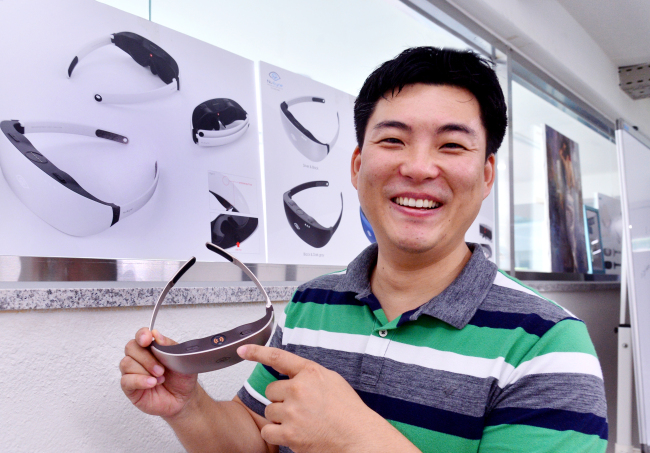
Nu Eyne CEO Kim Do-hyoung Park Hyun-koo/The Korea Herald
The startup was co-founded in 2017 by Kim -- who holds a Ph.D. in biomedical engineering from Hanyang University and has worked for the US-based Mayo Clinic and local health-tech startup Ybrain -- and three fellow engineer-entrepreneurs with experience in medical device development, patenting and approval.
Though the eventual goal is to treat all cases of DES, Nu Eyne is initially developing its product with post-LASEK and LASIK patients, who experience DES due to corneal damage, as the primary patient target.
During laser eye surgery, corneal nerve bundles are removed as a whole, impairing the eye’s sensitivity and tear-producing mechanisms. Even with time, most of these nerves do not grow back, and patients will go on to live with the consequences, one of which is DES, Kim said.
“People get LASIK or LASEK for improved eyesight. But if another element of the eye is damaged in the process, is it really productive? This is why we saw a need to develop our device.”
The size of the potential market is big. In Korea alone, around 2.1 million people are diagnosed with DES annually, according to Korea’s Health Insurance and Review Assessment Service. And an estimated 200,000 people receive laser eye surgeries every year, according to Nu Eyne.
"In Europe, there are similar CE-certified devices that use electrical optic nerve stimulation to treat conditions like glaucoma. We believe that this precedent, combined with strong clinical evidence, will enable us to swiftly earn regulatory approval.”
After rolling out its product in the Korean market, the startup said it also hopes to bring the technology to Europe as well as Southeast Asia, where vision correction surgeries are becoming more popular.
Located at the city-run Seoul Bio Hub, Nu Eyne is currently backed by local startup accelerator Futureplay and the government-run TIPS program. It is also the winner of last year’s Seoul Innovation Quickfire Challenge hosted by Johnson & Johnson.
By Sohn Ji-young/ The Korea Herald (jys@heraldcorp.com)
EDITOR'S PICKS
- Trilateral talks acknowledge ‘serious’ slumps of won, yen
- Samsung C&T president makes her first business trip to Milan
- Seoul Business Agency CEO says SNS marketing essential for SME
- CJ Olive Young offers real-time translators for foreign visitors
- Hyundai Motor, Toray join hands for material innovation in mobility
- Paris Baguette debuts in the Philippines
- Samsung develops fastest DRAM chip optimzied for ondevice AI
- Amazon fuels e-commerce rivalry with free shipping campaign







